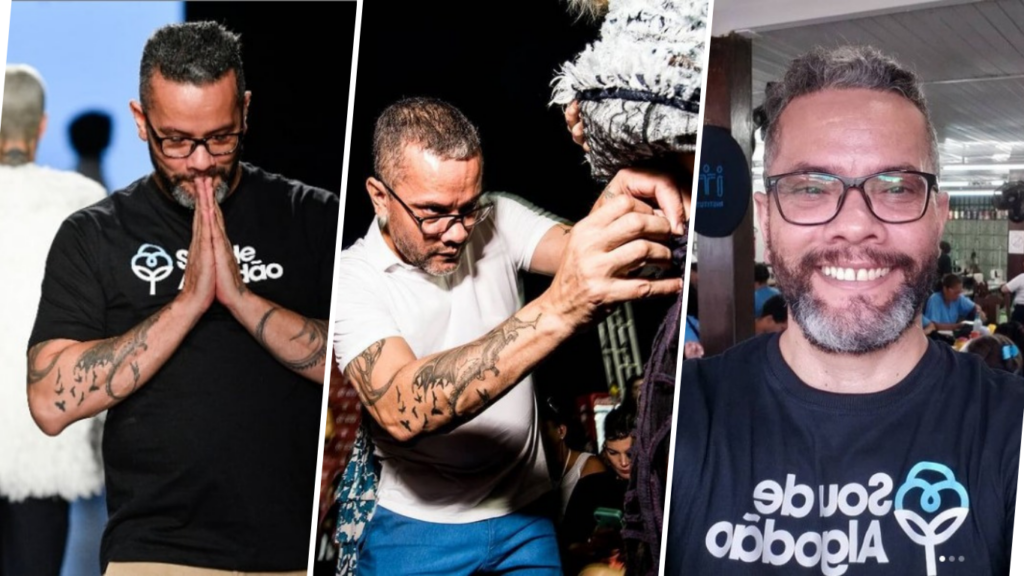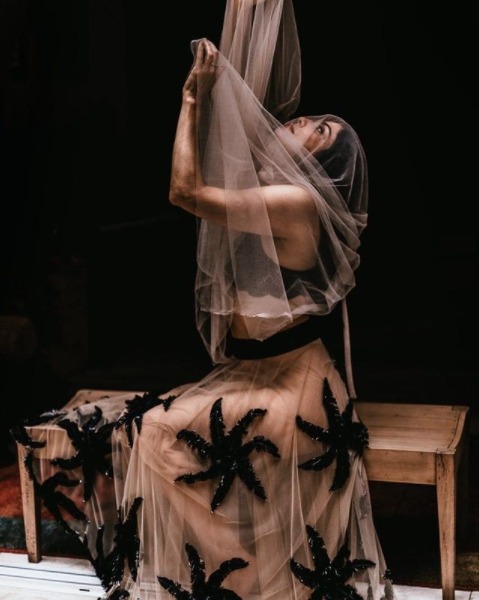Her power is creativity and her most valuable instrument is her sewing machine.
How can a stylist help develop their community and also bring hope to vulnerable people? To provide other people with access to decent work Ronaldo Silvestre, Fashion Designer - who according to him works as a Social Designer - used his gift of creativity to offer a better quality of life to women, young people and mothers in his homeland , Itabira (MG), through solidarity economy and entrepreneurship.

Ronaldo Silvestre is a community leader, founder and President of the ITI Institute – Equality, Transformation & Social Innovation, founded in 2009. The NGO works in professional training, income generation, entrepreneurship and gender equity. Photos/reproduction
To understand Ronaldo's story, we need to remember one of the separatist movements in the history of Brazil, which became known as the Tailors' Revolt. In 1798, inspired by the ideals of the French Revolution – Equality, Freedom and Fraternity – the Conjuração Baiana occurred, a separatist movement, which aimed to abolish slavery and meet the demands of the poorest sections of the population. This historical context linked to clothing is the starting point of the conversation with Ronaldo Silvestre, who masterfully explained the role of clothing, which ranges from protecting the body to dividing shells. And, beyond that, “it’s the weapon we have for the great revolutions in the world”, says Ronaldo.
If at that time the great popular struggle was for independence from the Portuguese crown, today, many women in Brazil continue to fight for their financial independence, to give themselves and their children a more dignified life. And it is in this story that Ronaldo effectively participates, making his contribution to the transformation of several lives.
After all, who is Ronaldo Silvestre?
The answer came immediately: “a dreamer!” For him, his story reflects that of his mother, who always taught him to have faith, hope and never stop believing.
Son of Eurídice Martins da Silva, a woman who had a difficult life, made her living by washing clothes and selling pastries on the streets of the small town in Minas Gerais. He often exchanged the service for used clothes and school supplies, also used, to give to his children. When she was able to buy her first sewing machine, her family's life became more prosperous.
Since he was a child, Ronaldo has shown his creative talent at school, where he excelled in drawing and art classes. Only later, when he was already working with industrial design at a multinational, did he decide to follow his dream of taking a fashion course at a university.
But the guiding thread of his journey came with ecodesign , a more sustainable fashion design proposal. From this movement, Silvestre produced a lot and achieved several national awards in the ecological fashion category. For eight years of her career, she dedicated herself to Sebrae's social projects, providing technical consultancy to seamstresses from rural workers' cooperatives in different corners of the country. And she never stopped turning her gaze and energy to social work.
“Respect our origins to build the transformation that we so desire”
After spending a large period of his life in the southern region of Brazil, Ronaldo decides to return to Itabira, this time with a mission: to propose social transformation. “I understood that if I want to propose a transformation, it needs to start at my origins”. The reality that Ronaldo found in Itabira during his return was shocking, he reports. Friends who studied with him at school were already grandparents at the age of 40, many of them were mothers in their teens.
These women have lived a life of both financial and psychological difficulties, factors that aggravate their lack of professional and personal development. Upon becoming aware of this reality and realizing that he had all the necessary tools to plant the seeds of the transformation he so desired, the ITI Institute was founded.
However, NGO managers don't live by dreams alone. It's a lot of voluntary work and, unfortunately, no matter how tirelessly you work, you may still hear harsh criticism and doubts about you. Ronaldo says that because of his social development project he was misunderstood. Local politicians and businesspeople inquired about his real interests. “Being resilient and overcoming prejudice”, within their city, was one of the biggest challenges faced in taking the project forward.
And if it weren't for your network of contacts and your knowledge, acquired throughout your career as a fashion designer, it would not be possible to develop your social project. “Being a social organizer means understanding the possibilities you have and the way you can contribute to making things happen,” she says.
Even with the “no’s” and all the difficulties along his journey, it was with aplomb that he managed to move forward. Today the ITI Institute is a source of inspiration for other NGOs and people to strengthen and develop.

In the photo, actress Letícia Sabatella wears ARTWEAR – Ronaldo Silvestre. It has a tulle skirt embroidered with denim textile waste from Capricornio Têxtil. Textile redesign produced by the women of the ITI Institute. Photo reproduction/ Credits: @nakaoamanda
“When we help others we learn and are happy with the other’s achievements”
For Ronaldo, the measurable results of his work, to date, are the increase in the quality of life of mothers and children, who, through the ITI Institute's sewing course, are able to have a source of income to support their families and even pay a faculty.
“The 'measurable' [result] is seeing a mother over 40, with 3 or 4 children, worried about going to college, to improve her life. And fight so that your daughter doesn’t follow the same path she had, or get pregnant as a teenager.” Upon witnessing several women with stories similar to these, in a breaking of cycles, Ronaldo increasingly believes in the transformative power that a sewing machine has.
With this desire to make new futures possible for other people, he follows his dreams turning them into realities. And he leaves a message, especially for people who work in the third sector and are in charge of NGOs: “May we never stop believing and being persistent, of having a vision of the world that inspires us to work in NGOs. Think that you can help other people and other NGOs with your work, and that you are fulfilling your role in the world. It is a joint construction and in the end, we all fight for the same cause”, he concludes.







